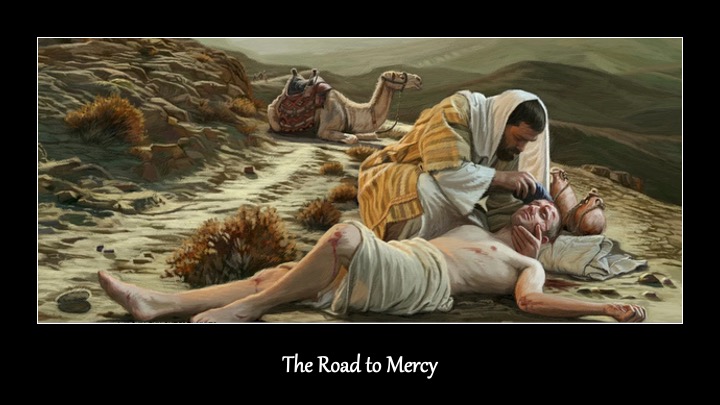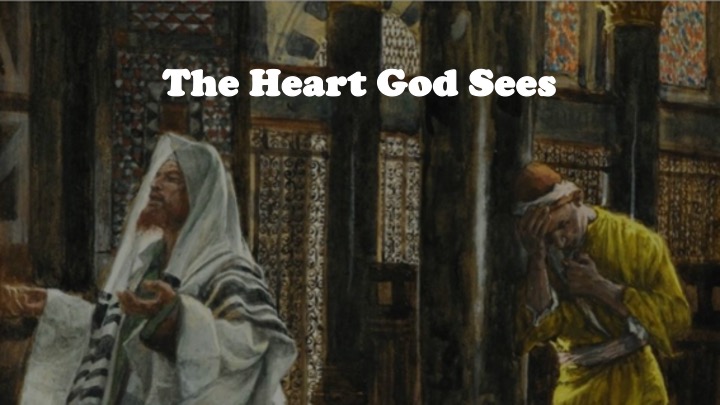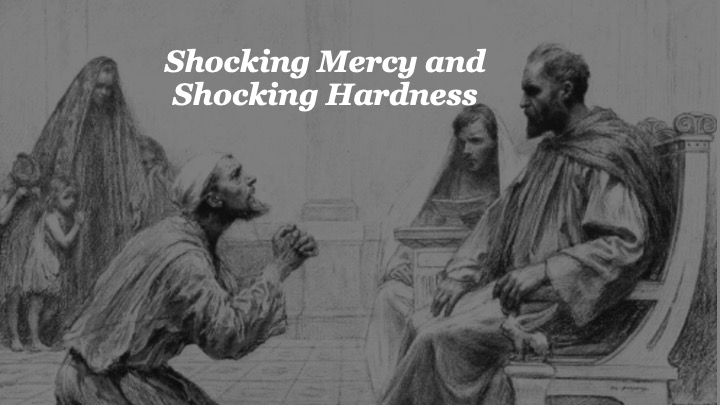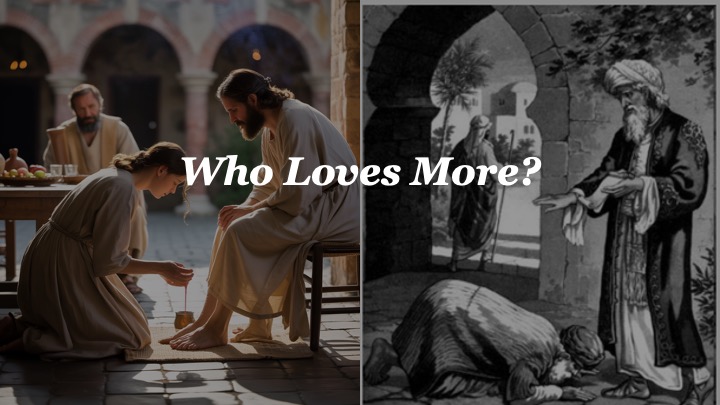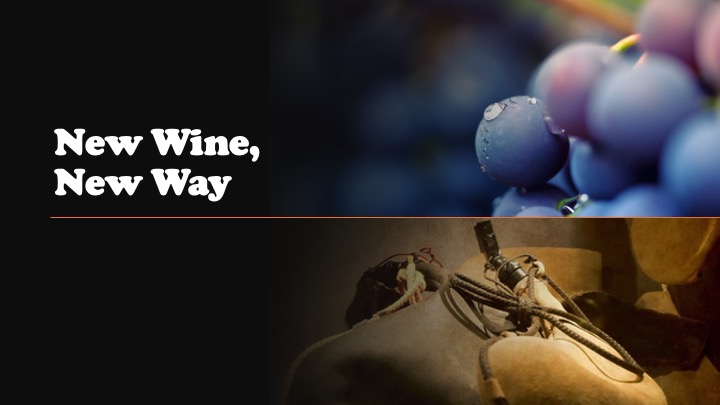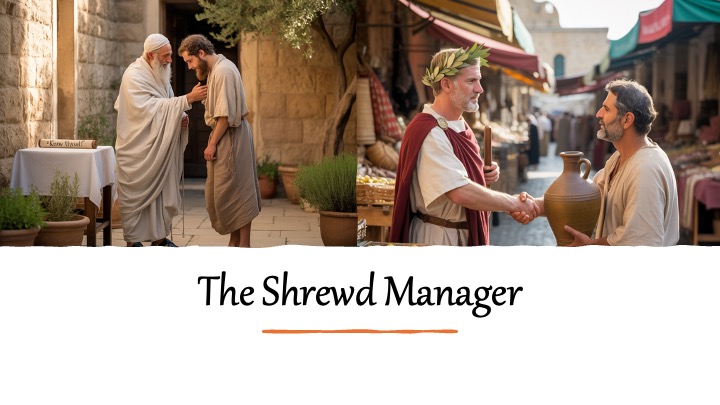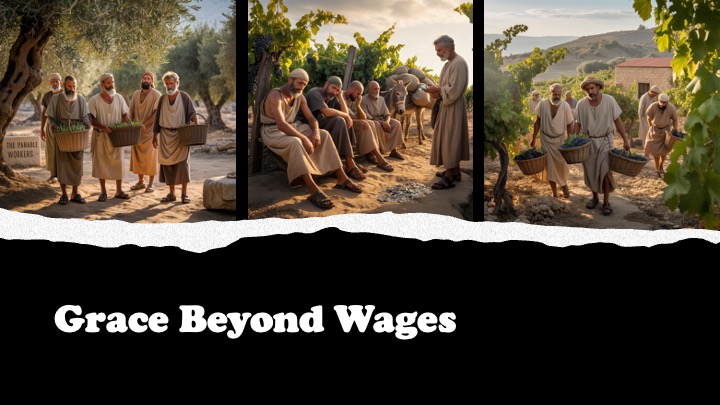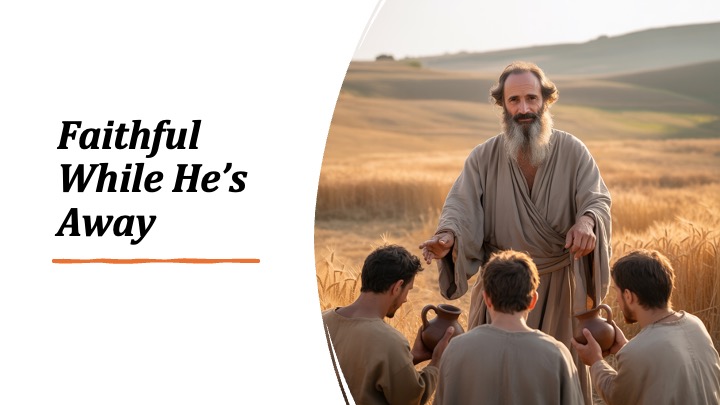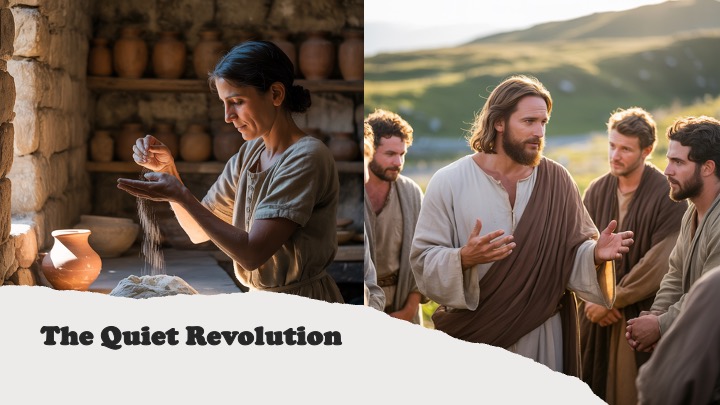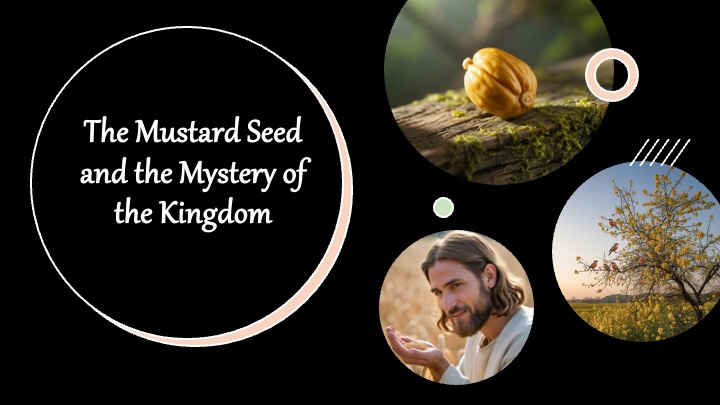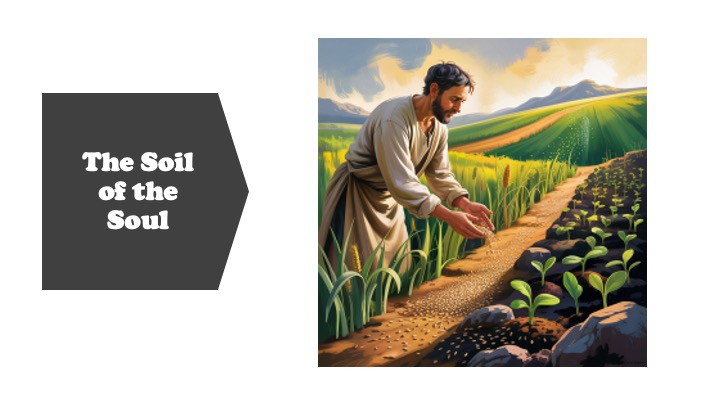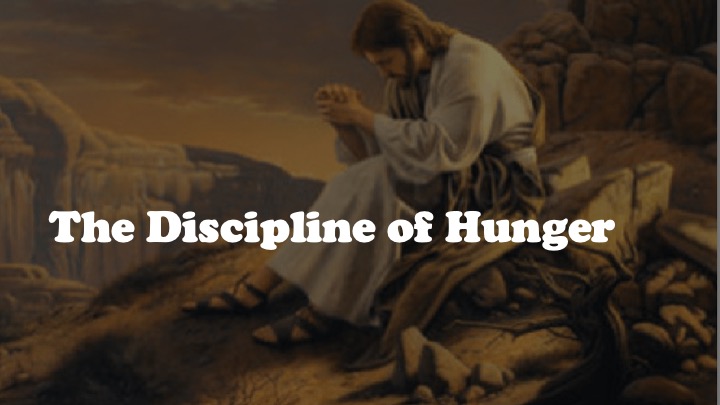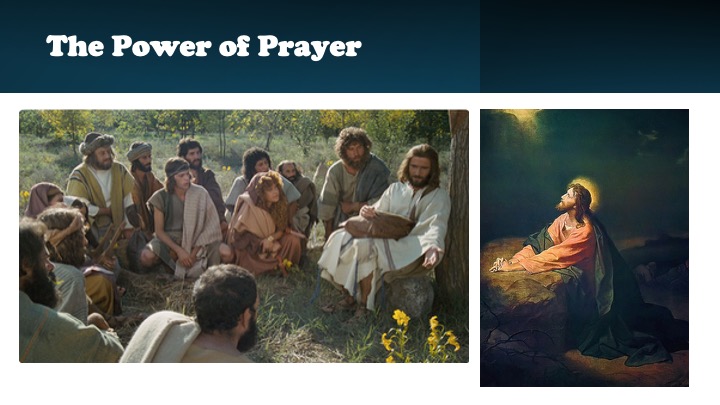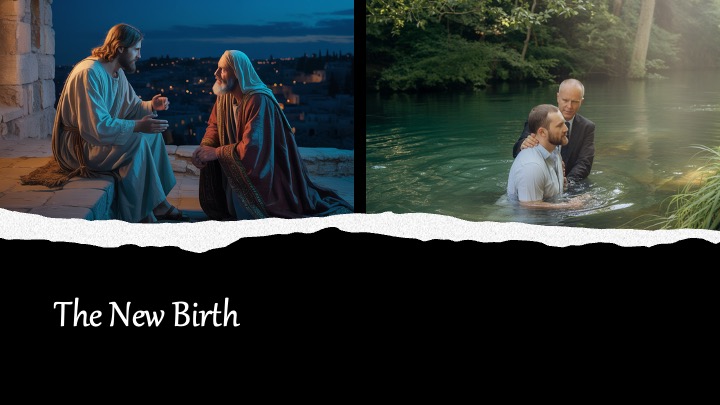Discover 1010 Thrive
1010 Thrive

1010 Thrive
Author: 1010 Thrive -- Home of the 1010 Podcast
Subscribed: 2Played: 1Subscribe
Share
© 2020 1010 Thrive -- Home of the 1010 Podcast
Description
A daily podcast each weekday sharing Biblical truth designed to help listeners find hope, meaning and fulfillment in life. Each weekday we air a new episode that features a devotional grounded in our 10-10 principles. Many episodes include original music and dramatizations.
728 Episodes
Reverse
The Parable of the Good Samaritan (Luke 10:25-37) is Jesus' revolutionary answer to the question posed by an expert in the Law, who sought to narrow the definition of "neighbor" in order to justify himself. Set on the notoriously dangerous road from Jerusalem to Jericho, the story features a wounded, half-dead traveler who is ignored and passed by by a Priest and a Levite—both symbols of religious piety and respectability—who prioritize ritual purity or self-preservation over compassion. This shocking failure of the religious elite serves to highlight the painful truth that proximity to religion does not guarantee genuine mercy, and that religious respectability can often provide an excuse for avoiding costly, inconvenient love.
The pivot of the parable occurs with the entrance of the Samaritan, a person whom Jesus' Jewish audience despised as a heretic and an enemy. The Samaritan, the one least likely to help, becomes the hero who embodies the love of God. He is moved by deep pity, closes the distance to the wounded man, and initiates a series of costly actions: bandaging the wounds with oil and wine, giving up his own donkey, transporting the man to an inn, and committing his own funds for the victim's future care with a promise to return. This extreme commitment reveals that true love is sacrificial, inconveniencing, and committal, crossing all boundaries of ethnicity, class, and creed, and demanding an investment that has no expiration date.
Ultimately, the parable is a profound mirror of the Gospel and a direct summons to imitation. Jesus not only calls for ethical action ("Go and do likewise") but also reveals that He Himself is the Good Samaritan: He sees humanity stripped of dignity and half-dead in sin, and moves toward us, binding our wounds with unearned, undeserved grace. By making the hero an enemy, Jesus fundamentally reframes the concept of neighbor, shifting the focus from "Who qualifies for my love?" (the lawyer's question) to "Am I living as a neighbor?" (the call to action). The message is that the Kingdom of God is revealed through active, costly mercy, and the measure of genuine righteousness is not adherence to ritual, but the willingness to stop, see, and serve those wounded along life's road.
The Parables of the Lost Sheep and the Lost Coin (Luke 15:3-10) reveal the profound truth that the Kingdom of God values every individual soul with relentless, inestimable worth. Jesus told these simple stories in direct response to the grumbling of the Pharisees and teachers of the law, who criticized Him for welcoming and eating with "sinners." By making the shepherd leave ninety-nine sheep and the woman diligently search for one lost coin, Jesus dramatically reframed His mission, showing that His association with outcasts was not a casual mistake but a deliberate, joyful act of divine pursuit. The parables teach that God's love is reckless by worldly standards, demonstrating that He will not rest until the one percent that is missing is found, reinforcing that every person is of infinite worth and is noticed when they wander or are lost.
These parables offer deep insight into the character and purpose of Jesus Christ. His character is revealed as active, compassionate, and fiercely pursuing: He is the Good Shepherd who leaves the safety of the fold to initiate the rescue, and He is the Light that illuminates the shadows to find what is hidden. This pursuit is not born of obligation but of profound, singular compassion. Furthermore, His purpose is entirely centered on restoration, not condemnation. The parables both begin and end with celebration, showing that the ultimate goal of Jesus' mission is not merely to find the lost, but to bring them back to their rightful place, culminating in an exuberant party in heaven over "one sinner who repents."
The ultimate call of these parables is to receive the love of the Seeker and embody His heart in ministry. They challenge us to shed the shame that makes us hide and allow ourselves to be found by the Shepherd who approaches with joy, not scolding. Simultaneously, they summon believers to imitate Christ by embracing intentional and persistent pursuit of those who are lost or unseen in their own lives. We are called to share the exuberance of heaven by celebrating redemption boldly and making room in our lives and communities for the newly found. The parables confirm that the essence of discipleship lies in recognizing that we are saved by grace when He finds us, and our greatest honor is to partner in the mission of joy.
The Parable of the Pharisee and the Tax Collector (Luke 18:9-14) is a striking teaching delivered by Jesus to those "who trusted in themselves that they were righteous, and treated others with contempt." Set in the Temple, the story contrasts two men praying: the Pharisee, who boasts of his meticulous religious discipline (fasting, tithing) and pointedly thanks God that he is "not like other men," including the nearby tax collector; and the tax collector, who stands far off, beating his breast in sincere shame and crying out only, "God, be merciful to me, a sinner!" Jesus uses this sharp juxtaposition to reveal that genuine spirituality is not about outward religious performance or comparative morality, but about absolute dependence and humility before God.
The parable dismantles the blindness of religious pride by exposing the fatal flaw in the Pharisee’s prayer: he needed nothing because he believed he had achieved everything. His prayer was a sanctified performance directed at God, using the divine as a prop for self-exaltation. Conversely, the tax collector, a known social outcast and economic collaborator, brought nothing but raw confession and a profound plea for hilastheti—a word that evokes atonement and divine covering. Jesus delivers the startling reversal by declaring that the tax collector, the one society condemned, went home justified (declared right with God), rather than the outwardly virtuous Pharisee. This confirms that the dividing line between the accepted and the unaccepted is not determined by external deeds but by the internal state of the heart.
Ultimately, this parable serves as a cornerstone of the Gospel, revealing the heart of Jesus and the nature of true justification. Jesus affirms that God is not impressed by boasting or merit; He is moved by a contrite heart and the faintest cry for mercy. The concluding moral—"everyone who exalts himself will be humbled, but the one who humbles himself will be exalted"—is a clear statement of the Kingdom's great reversal. It teaches that salvation is not a reward for religious effort but a gift of grace received through faith and humility. The parable thus stands as a perpetual challenge to believers to shed the "Pharisee within" and constantly approach God with the naked honesty and brokenness of the tax collector.
The Parable of the Unmerciful Servant (Matthew 18:23–35) is a profound and painfully honest lesson on the nature of divine forgiveness and human hypocrisy, delivered by Jesus immediately after telling Peter that forgiveness must be limitless ("seventy-seven times"). The story opens with a king canceling an astronomical, unpayable debt of ten thousand talents—an infinite sum representing the total, catastrophic nature of humanity's sin against God. This act of mercy beyond measure is the foundational grace of the parable, showing that God's forgiveness is lavish, total, and freely given, wiping the slate clean without demanding repayment. This confronts the listener with the staggering size of their own spiritual indebtedness and the limitless generosity of God, positioning Jesus as the debt Redeemer who alone can cancel the unpayable charge against us.
The central movement of the parable exposes the profound tragedy of human hypocrisy when the forgiven servant immediately encounters a fellow servant who owes him a trifling amount—a hundred denarii (pocket change compared to the king's canceled debt). Despite hearing the exact same plea for patience he himself had just uttered, the first servant coldly refuses mercy and throws his peer into prison. Jesus uses this jarring contrast to teach that no offense against us, no matter how deep the hurt, can compare to the infinite debt we have been forgiven by God. We are often like that servant, hoarding grace for ourselves while being stingy and unforgiving toward others. This demonstrates that unforgiveness is never a private matter; it poisons communities and fundamentally contradicts the grace that the individual claims to have received.
The final, sobering movement serves as a clear warning and a litmus test of a transformed heart. The king is righteously angered by the servant's lack of mercy and hands him over to the jailers, with Jesus concluding, "This is how my heavenly Father will treat each of you unless you forgive your brother or sister from your heart." Jesus is not teaching salvation by works, but that forgiveness received must inevitably result in forgiveness given. If a believer refuses to extend mercy, it is evidence that they have never truly grasped or internalized the radical, costly grace provided by Christ's sacrifice. Forgiveness, therefore, is not optional; it is the essential, non-negotiable proof that one is participating in the life of the Kingdom, which runs entirely on mercy and is built on the foundation of the infinite debt Christ paid on the cross.
The Parable of the Two Debtors, set within a tension-filled dinner party at the home of Simon the Pharisee (Luke 7), serves as a powerful reframing of the nature of sin, righteousness, and love. The scene is ignited when a "sinful woman" publicly and extravagantly anoints Jesus' feet, prompting Simon to silently condemn Jesus for allowing such an "unclean" touch. Jesus immediately responds with the parable of a moneylender who forgives one massive debt (500 denarii) and one small debt (50 denarii). By asking Simon which debtor would love the moneylender more, Jesus draws out the correct answer—the one forgiven the greater amount. This short exchange skillfully shifts the focus from the woman’s public sin to Simon’s hidden pride; both the self-righteous Pharisee and the scandalous woman are spiritually bankrupt debtors, but only the woman recognizes the impossibility of her debt and responds with overwhelming gratitude.
This profound teaching reveals the core of Jesus’ ministry and character, overturning all worldly metrics of worthiness and status. Jesus’s consistent willingness to associate with outcasts and sinners, and His elevation of the woman as a model of love and faith, demonstrates that worthiness in His kingdom is not determined by religious performance, reputation, or adherence to the Law, but by humility and repentance. Jesus avoids shaming the woman while simultaneously confronting Simon's complacency and lack of hospitality, showing that divine grace is not sentimental; it is truthful. It exposes sin in order to offer forgiveness. By linking forgiveness and love—stating that "whoever has been forgiven little… loves little"—Jesus makes clear that His purpose is to create disciples who are motivated not by fearful duty, but by extravagant love born of immense gratitude for salvation freely received.
Ultimately, the Parable of the Two Debtors demands that every listener recognize their own spiritual bankruptcy and embrace a life defined by grace and accountability. We are all debtors who cannot pay, and the more we understand the magnitude of the debt Jesus has canceled through His sacrifice, the greater our love and worship should become. The parable compels believers to extend that same grace to others, using the forgiveness they have received as the foundation for a life of extravagant love, service, and generosity. This is Jesus’s call to create a community—a church—where all members see themselves equally as forgiven debtors, replacing self-righteousness and judgment with the empathy and compassion that flows directly from His unmerited grace.
The Parable of New Wineskins (Matthew 9:16-17) is Jesus’ powerful response to those who questioned why His disciples did not follow traditional religious practices like fasting. Jesus uses the relatable imagery of tailoring and winemaking to explain that His arrival did not constitute a mere "repair job" on the existing religious framework, but the inauguration of a radically new covenant and way of life. An old garment, representing rigid legalistic structures and outdated traditions like those practiced by the Pharisees, cannot integrate with the new patch—Jesus' message of grace and transformation. Trying to force this mixture will only destroy the old fabric and cause more division. The context reveals Jesus as a gracious disruptor who challenges the status quo not to create chaos, but to bring restoration rooted in grace, intimacy, and freedom, a kingdom built not on rules, but on inward transformation.
The more vivid image of pouring new wine into old wineskins further clarifies this truth. In ancient times, new wine, representing the dynamic, expansive life and power of the Kingdom of God and the indwelling of the Holy Spirit, requires flexible new skins to contain the pressure of its fermentation. Rigid, brittle old wineskins, symbolizing unyielding mindsets, fear-based spirituality, and loveless obedience, would inevitably burst, wasting both the vessel and the precious wine. Jesus is teaching His followers the critical lesson of spiritual urgency and intentionality: if they wish to receive the fullness and vitality of His presence, they must be willing to surrender their old routines, assumptions, and legalistic frameworks. This parable reveals that the old system was inherently insufficient to carry the weight of God’s complete redemptive plan, demanding a transformation of the vessel itself.
Ultimately, this brief parable offers profound insight into Jesus' purpose: He came to birth a new covenant and create "new wineskins"—the believers themselves. The parable reveals that discipleship is not passive; it requires active surrender to the reshaping power of the Holy Spirit. Jesus calls His followers to be as strategic and intentional about their eternal lives as worldly people are about temporary gain. By embracing the inevitable "stretching" that comes with the new wine, the disciple becomes a flexible, Spirit-formed vessel capable of carrying the life of Jesus into the world. This profound teaching shows Jesus as both a Savior and a King, one who offers grace but demands accountability, continually challenging His followers to align their lives, priorities, and resources with the transformative, uncontained nature of His eternal Kingdom.
The Parable of the Shrewd Manager (Luke 16:1-8) is a challenging but profound teaching that uses a morally questionable figure to impart critical spiritual principles. Jesus tells the story of a rich man who dismisses his manager for wasting assets. Facing unemployment and unwilling to beg, the manager acts shrewdly: he quickly uses his remaining authority to reduce the debts of his master's debtors, thereby guaranteeing himself new friends and hospitality once he is jobless. Rather than condemning this final act of opportunism, the master—and by extension, Jesus—praises the manager's shrewdness, decisiveness, and intentional planning for his uncertain future. The central paradox is intentional: Jesus uses a worldly example of self-preservation to pivot the discussion from God's grace (highlighted in the preceding parables) to human responsibility and urgent stewardship.
The primary lesson Jesus draws is a powerful challenge to believers: "The people of this world are more shrewd in dealing with their own kind than are the people of the light." Jesus clarifies that He is not applauding dishonesty but praising the manager's wisdom and urgency in using temporary assets (worldly wealth and influence) to secure a guaranteed future (making friends who will welcome him). This immediately deepens the understanding of discipleship, moving it beyond passive belief into strategic action. Jesus demands that His followers apply the same level of focus, creativity, and urgency that secular people use to pursue temporary gains toward the eternal purposes of the Kingdom.
Ultimately, the parable reveals deep truths about both Jesus and the nature of discipleship. It underscores that everything we possess—time, talent, and treasure—is not ours, but entrusted to us by God, making us stewards, not owners. Jesus calls His followers to use their "worldly wealth" to "gain friends for yourselves... that you will be welcomed into eternal dwellings." This means directing resources toward serving others, advancing the Gospel, and influencing people toward Christ. The message is framed as both a challenge to believers to live with eternal urgency and a rebuke to religious leaders misusing wealth, reminding all listeners that grace empowers accountability, and true following affects everything, including how we manage our temporary lives for God's eternal glory.
The Parable of the Workers in the Vineyard, told by Jesus in Matthew 20, is a radical teaching about the scandalous economics of God's grace that flips the worldly logic of merit on its head. The story details a landowner who hires laborers at different times of the day—some at sunrise, some just one hour before quitting time—and then pays every single person the same full day's wage (a denarius). This provokes outrage and grumbling from those who "bore the burden of the work and the heat of the day." Jesus uses this scenario, which is immediately relatable via the contemporary illustration of the tech startup bonus, to teach that the Kingdom of Heaven operates entirely on grace, not human merit or effort. The denarius represents salvation, which is a generous gift from God, available to all regardless of their years of service or personal resume.
Jesus uses the predictable offense of the early workers to expose the destructive nature of religious pride and comparison. The landowner points out that he was not unfair to the first workers, who received exactly what they had agreed upon, but rather profoundly generous to the last. Their bitterness reveals that they had forgotten their own need for grace and were consumed by envy over what others received. This parallels the conflict Jesus had with the self-righteous Pharisees, who despised his embrace of "latecomers" like tax collectors and sinners. The parable serves as a mirror, challenging anyone who believes they have earned a greater reward from God, and teaches that comparison destroys gratitude and joy in the simple, yet profound, gift of salvation.
Ultimately, the parable reveals Jesus as the defender of the undeserving and the generous Master. He affirms that the Kingdom is accessible to all who are willing to come, whether they come early in life or just moments before the end. The concluding lesson, "the last will be first, and the first will be last," is an invitation to lay down self-entitlement and embrace the joy of the Master, who delights in showing mercy. The message is one of hopeful assurance: we are all saved by the same grace, and rather than growing bitter over God's generosity to others, we are called to celebrate that the landowner is so extravagantly good.
The Parables of the Talents and the Minas share a powerful, singular message about stewardship and accountability during the period between Jesus’s ascension and his promised return. Jesus entrusts his servants—representing all followers—with significant resources (five, two, or one talent/mina), emphasizing that every person has been given something by God: time, skills, influence, or opportunity. The core principle is not how much one received, but faithfulness in actively investing and multiplying what was given. The faithful servants were rewarded with the same high praise ("Well done, good and faithful servant!") regardless of the volume of their returns, demonstrating that God values effort, courage, and action over mere results or comparison with others.
These parables serve as a profound warning that passivity and fear are dangerous forms of unfaithfulness. The third servant in Matthew's parable buried his one talent out of fear and a warped perception of the master as harsh and unforgiving, leading to severe rebuke. Jesus contrasts this paralyzing fear with the joyful risk-taking demonstrated by the first two servants. By highlighting the master’s inevitable return and moment of reckoning, Jesus underscores the sobering reality that every life will be held accountable. Followers are challenged to live alert, responsible, and fruitful lives during this "in-between" time, realizing that inaction—burying one's gifts—is not a neutral choice but a direct rejection of the Master's trust.
Ultimately, these parables reveal deeper truths about Jesus's character and the nature of the Kingdom. Jesus is portrayed as the trusting master and the returning King—one who empowers his servants with real responsibility and delights in their flourishing, even while knowing their flaws. His teaching exposes the danger of fruitless religion, challenging followers who might hide their gifts behind legalism or a distorted, fear-based view of God. The parables are an invitation to live with an eternal perspective, where every moment of service and every risk taken for the Kingdom is seen, valued, and will be rewarded upon the King’s final, just return.
The Parable of the Growing Seed, unique to Mark's Gospel, reveals the profound mystery and hidden power of the Kingdom of God. Jesus likens the Kingdom to a farmer who scatters seed and then passively waits while it sprouts and grows "of itself" (automatos), without the farmer knowing how. This central mystery teaches followers a crucial lesson in discipleship: the Kingdom's success is not dependent on human control, exertion, or cleverness, but entirely on the inherent, unseen power of the divine seed and the soil. The farmer's role is simple obedience—to scatter the seed—but the mechanism of germination and growth belongs solely to God. This truth is meant to relieve the pressure felt by those who are desperately trying to force spiritual results, encouraging them to trust the process.
The parable emphasizes that spiritual growth is gradual, occurring in defined stages—first the stalk, then the head, then the full grain—a rebuke to the cultural desire for instant gratification. Jesus urges patience, assuring listeners that growth, whether in their own lives or in the spiritual development of others, takes time and must not be prematurely disturbed. The story provides hope for those in the "in-between" seasons who feel their faithfulness is insignificant because the seed is growing even when they sleep or are unaware of the process. The parable concludes with the promise of a certain harvest, a future climactic moment when the patient, hidden work of God will come to fruition, confirming that the farmer's initial act of scattering seed was never wasted.
Ultimately, the Parable of the Growing Seed offers deep insight into Jesus’s character and ministry. Jesus is the Master Sower who planted the Word of God into human hearts, trusting the transformative power of the Spirit over immediate, sensational results. He models humble power, honoring the pace of God and demonstrating that waiting is wisdom, not weakness. The parable calls listeners to embrace the spiritual discipline of faith: to focus on their obedience (sowing the seed) and surrender their control over the outcome (the harvest). It serves as an anchor of hope, reminding believers that the Kingdom is alive, growing in secret, and headed toward a final, promised satisfaction.
The Parable of the Net, the final one in a series of seven describing the Kingdom of Heaven, introduces a sobering, apocalyptic tone by focusing on the ultimate sorting that will occur at the end of the age. Using the familiar imagery of a dragnet cast into the Sea of Galilee, Jesus illustrates that the invitation to the Kingdom is universal—the net "caught all kinds of fish," representing every type of person: rich, poor, righteous, and wicked. This highlights God's expansive grace, which draws all people toward the message of the Gospel. However, the parable also serves as a warning against false assurance, making it clear that being near the things of God (or even "caught in the net") is not the same as being kept in the Kingdom.
Jesus explicitly interprets the parable, explaining that the sorting process will be handled by angels at the end of the world. They will separate the wicked from the righteous, casting the wicked into a blazing furnace—a teaching that underscores the certainty of divine justice. This revelation is both intense and urgent, as it confirms that unrepentant rejection of God's grace carries eternal consequences. The parable emphasizes that because the separation is delayed, the age of grace continues, and good and "bad" fish remain together in the net. This establishes that judgment is God's task, not humanity's; our role is to remain faithful witnesses and ambassadors of the Kingdom, not to preemptively sort or condemn others.
Ultimately, the Parable of the Net reveals the beautiful, yet serious, duality of Jesus's character: He is both gracious and just. His grace gathers, and His justice separates. The parable warns the complacent and challenges those who seek a Jesus who only heals but never judges. It urges followers to live with eternal urgency, knowing that the net will not be in the water forever. The message is a final call to self-examination and transformation, reminding listeners that true discipleship demands surrender and a life lived as a citizen of the Kingdom, ready for the inevitable final harvest.
The Parable of the Pearl of Great Price presents the Kingdom of Heaven as a treasure of incomparable worth that is sought out and found by a discerning merchant. Unlike the previous parable of the Hidden Treasure, this merchant is actively searching, possessing the knowledge and experience to recognize the pearl's supreme value immediately upon finding it. The parable emphasizes that the reign of God is so valuable that once truly seen, nothing else in life holds comparable worth. This truth serves as a spiritual invitation to assess one's deepest priorities and recognize that the relationship with Christ supersedes all worldly status symbols, wealth, or comfort, just as pearls were prized over all other gems in the ancient Roman world.
The response of the merchant—selling everything he owns—underscores the radical nature of Jesus's call to discipleship. This is not a story about obligation but about joyful surrender; the man is thrilled to relinquish all his possessions because he knows he is gaining something infinitely more precious. This highlights the paradox of grace: the kingdom is a free gift, yet it demands a total, uncompromising commitment. Jesus consistently taught that a follower must be willing to give up all personal attachments to make Him the organizing center of their life. The cost is real, but because the treasure is so great, the sacrifice is experienced not as a loss, but as freedom and profound gain.
Ultimately, the parable reveals deep truths about Jesus's character and the nature of the Kingdom. Jesus is the ultimate "pearl of great price," the one in whom all the treasures of wisdom and knowledge are hidden, and finding him is finding everything. The parable honors the diligent seeker, showing that Jesus welcomes those who search deeply for truth and meaning. By calling for total surrender, Jesus challenges every competing value system, inviting us into an economy of grace where love reigns and sacrifice is the joyful pathway to abundant life. It also subtly suggests that, just as the merchant gave up everything for the pearl, Christ himself gave up his heavenly glory—making us his own "pearl of great price."
In the Parable of the Hidden Treasure, Jesus describes the kingdom of heaven as a treasure that a man unexpectedly finds in a field. This parable is simple yet explosive, highlighting that the kingdom of heaven is not something that can be earned or bought with status, but rather a glorious discovery that reorders a person’s entire life. The man’s response to finding the treasure is one of immediate and profound joy, which motivates him to sell everything he owns in order to acquire it. This action turns common notions of sacrifice on their head, as Jesus portrays discipleship not as a burdensome act of begrudging obedience, but as a joyful exchange of lesser things for the greatest treasure imaginable.
The parable's power lies in its focus on the incomparable worth of knowing Christ. It demonstrates that when one truly grasps the value of the Gospel, all other priorities—wealth, comfort, fame—pale in comparison. While the kingdom is a free gift of grace that cannot be earned, it does come with a cost: it demands a total surrender of what has previously defined us. The man's willingness to "sell all he had" illustrates that the cost of discipleship is real, but in the light of the immense treasure found in Christ, that cost no longer feels like a loss. Instead, it feels like a path to true freedom and unimaginable joy.
Beyond teaching about the kingdom, the parable also reveals a deeper truth about Jesus himself. He is the ultimate treasure, a truth often hidden in plain sight from those looking for power or spectacle. Jesus’s own life and death modeled this joyful surrender, as he gave up his heavenly glory for the sake of humanity. By telling this parable, Jesus calls his followers to a new value system, inviting them to recognize him as the central organizing force of their lives. The parable challenges listeners to examine what they truly treasure and to willingly let go of lesser things in order to embrace the surpassing worth of knowing Christ.
In the Parable of the Yeast (or the Leaven), Jesus compares the kingdom of heaven to a tiny speck of leaven mixed into a large quantity of flour. This seemingly mundane image is a powerful metaphor for the invisible yet profound way God's kingdom operates. Unlike earthly kingdoms that arrive with spectacle and force, Jesus’s kingdom works from within, silently and steadily transforming everything it touches. The parable emphasizes that the kingdom's influence is not always obvious or dramatic; it begins in secret places—in hearts, homes, and humble acts—and grows with a quiet power that will ultimately change families, communities, and the world.
The parable's use of a familiar domestic scene—a woman baking bread—underscores that God's work is not confined to grand, public stages. It affirms that kingdom work happens in ordinary places through ordinary people. Jesus highlights a message of abundance and exponential impact, noting that a small amount of yeast can affect a massive amount of dough. This teaches that even a single act of faith, prayer, or kindness can have a far-reaching influence. It's a reminder that we must not mistake the invisible work of God for inactivity, and that his Spirit is constantly at work beneath the surface, transforming lives in ways we cannot immediately see or measure.
Ultimately, the Parable of the Yeast reveals profound truths about Jesus himself. It shows him as a quiet revolutionary whose method is one of slow, deep, relational transformation rather than political power or public coercion. His character is patient and intentional, working from the inside out to change our thoughts, desires, and dreams. Jesus also invites us into partnership, calling his followers to be "yeast-bearers" in their own spheres of influence—in their families, workplaces, and online communities. The parable encourages believers to embrace the power of small, faithful acts, trusting that God will use their obedience to bring about a quiet but unstoppable revolution.
In the Parable of the Mustard Seed, Jesus uses the familiar image of the smallest of all seeds to illustrate the surprising and expansive nature of God’s kingdom. The parable highlights that while the kingdom may begin in an inconspicuous and humble way, it possesses an extraordinary power to grow exponentially. This message was a profound counterpoint to the worldly values of Jesus's time, which favored spectacle and power. By comparing his kingdom to a seed that starts small but becomes a large, tree-like plant, Jesus taught his followers not to underestimate what looks insignificant, as this is often where God's most powerful work begins.
The parable's symbolism extends beyond simple growth, revealing the kingdom's radical inclusivity. The mustard plant, which becomes a haven for "the birds of the air," echoes Old Testament imagery of great kingdoms that provide shelter for all peoples. This was a subtle but powerful statement that God's kingdom would not be limited to a single nation but would become a refuge for everyone—Jews and Gentiles, insiders and outsiders. In a culture that was often tribal and exclusive, this parable presented a vision of a global, barrier-breaking kingdom that would welcome all who sought shelter within it.
Ultimately, the Parable of the Mustard Seed offers a deep reflection on the character of Jesus himself. He is the ultimate example of humble power, planted in obscurity, and buried in a tomb, only to rise and become the foundation of a global movement. This parable reveals that Jesus's purpose was to subvert human expectations by bringing about quiet, transformative change rather than a loud, top-down revolution. It invites followers to embrace the "mustard seed" life: to trust in the hidden work of God, to persevere in small, faithful acts, and to live as a refuge for others, knowing that God is in the business of turning a small seed into a mighty, world-changing force.
In the Parable of the Weeds, Jesus addresses the perplexing question of why good and evil coexist in the world. He likens the kingdom of heaven to a field where a farmer sows good seed, representing the children of the kingdom. However, an enemy secretly sows weeds among the wheat, symbolizing the children of the evil one. This parable provides a powerful framework for understanding spiritual opposition, warning that not all brokenness is accidental and that there is a real enemy at work. Jesus cautions against judging by outward appearance, noting that weeds and wheat can look alike, a key lesson for his followers who expected a swift and decisive separation of the righteous from the wicked.
The parable highlights a central conflict between the human desire for immediate judgment and God's patient, merciful timing. When the servants discover the weeds and want to pull them up, the master says no, fearing they might uproot the good wheat along with them. This command serves as a warning against premature judgment and religious gatekeeping. It teaches that our role is not to purify the world or the church through force, but to trust in God's wisdom and timing. Though judgment is delayed, the parable promises that it is not denied; a final harvest will come, where God’s angels will perfectly separate the righteous from the wicked, a process that is mercifully postponed to allow for repentance and growth.
Ultimately, the Parable of the Weeds offers a profound glimpse into Jesus's character and mission. It reveals him as a patient and merciful sower who plants his kingdom in the midst of a messy world. Jesus defines his mission by fruit, not by fame, and he understands that spiritual growth is a battle against real opposition. His parable is a call to believers to endure, to examine their own hearts, and to live for the promised harvest. The presence of evil does not signal the kingdom's failure; it signifies an ongoing battle in which the victory is already secured. Believers are called to patiently grow in faithfulness, trusting that God sees, knows, and will ultimately act.
In the midst of surging popularity and growing opposition, Jesus told the Parable of the Sower, one of his most foundational teachings. This story uses the simple analogy of a farmer, his seed, and four types of soil to explain how people receive the Word of God. Jesus, the sower, casts the same message everywhere, but its fruitfulness depends entirely on the condition of the human heart. The parable's central lesson is that the quality of the "soil"—the heart—determines whether the seed will be devoured, wither, be choked out, or produce an abundant harvest.
The four types of soil represent four distinct responses to the gospel. The "path" is a hardened, unreceptive heart where the message is quickly stolen away. "Rocky ground" represents a shallow, emotional faith that springs up quickly but lacks the depth to endure persecution or hardship. The "thorny ground" symbolizes a divided heart, one that receives the Word but allows the "worries of this life and the deceitfulness of wealth" to choke out its growth. Finally, the "good soil" represents a receptive, open heart that hears, understands, and retains the Word, leading to a fruitful life that multiplies in abundance.
Beyond its practical lessons for listeners, the parable also offers a profound glimpse into Jesus's own character and ministry. It reveals that he is a patient and generous sower who broadcasts the Word indiscriminately, not prejudging the soil. He respects human freedom, allowing each heart to choose its response without coercion. This parable shows that Jesus cares more about deep, lasting transformation than shallow popularity. It also serves as a warning that spiritual growth is a battle against internal and external resistance, and that a fruitful life requires the conscious effort to prepare and cultivate the soil of our souls.
Following the episode on prayer, this installment turns to fasting as another essential discipline in the life of Jesus and his followers. While often misunderstood as legalistic or austere, biblical fasting is a deeply spiritual practice that reorients the heart toward God. Jesus began His public ministry with a 40-day fast in the wilderness, modeling fasting not as punishment but as preparation—a way to focus on spiritual rather than physical needs. This episode highlights how Jesus, Moses, Daniel, Esther, and others used fasting to draw closer to God, seek clarity, and align with divine purpose.
The teaching draws three major lessons from Jesus’s fasting: it refocuses our desires, strengthens spiritual resolve, and creates space to hear from God. In resisting the devil’s temptation to turn stones into bread, Jesus declared that spiritual sustenance outweighs physical need. His fast was not about deprivation but liberation from worldly appetites. Like an athlete training for a race, fasting builds spiritual endurance. And by removing distractions, it sharpens our ability to discern God’s voice. The episode also explores fasting’s fruit—clarity, humility, and empathy—revealing how it can deepen our dependence on God while making us more attuned to the suffering of others.
In the "Let’s Get Deep" section, fasting is reframed as an intimate, private act between the believer and God. Jesus warned against performative fasting and called for sincerity and secrecy. Fasting is portrayed as a “love letter” to God—an embodied prayer of longing, dependence, and surrender. Practical suggestions follow: start small, fast with purpose, replace rather than merely remove, and combine fasting with prayer. Whether done individually or communally, fasting draws us into deeper intimacy with the Father and aligns our hearts with His will. As with all spiritual disciplines, the goal isn’t performance but transformation by Jesus.
uilding on the previous message about spiritual rebirth, this episode centers on the spiritual practice that sustains and enlivens our new life in Christ: prayer. Through the life of Jesus, we see that prayer was not a side practice or occasional discipline—it was essential. Whether choosing the apostles, performing miracles, or facing agony in Gethsemane, Jesus consistently turned to the Father in prayer. His example demonstrates that intimacy with God is the source of clarity, strength, and surrender. Prayer, for Jesus, was not religious performance but relational dependence.
Jesus also taught his disciples how to pray. Through the Lord's Prayer in Matthew 6, he showed that prayer is rooted in relationship (“Our Father”), shaped by God’s will (“Your kingdom come”), responsive to our needs (“give us this day…”), and aware of spiritual conflict (“deliver us from evil”). This teaching shifts prayer from a public show or wordy ritual into an honest, private conversation with a loving God. Prayer aligns us with God’s heart, centers us in His will, and gives us what we need to persevere and thrive.
In the “Let’s Get Deep” section, we learn that the power of Jesus was grounded not in dominance, but in dependence. His miracles flowed from a life rooted in prayerful connection to the Father. For believers today, prayer is how we “remain in the vine” and live fruitfully. It is not about eloquence or length, but consistency and honesty. Whether through creating a rhythm of prayer, praying Scripture, listening in silence, or interceding for others, this practice is how we stay tethered to the source of life and transformation. Prayer is not simply about what we say—it’s about who we are becoming through our connection to the God who hears.
In today’s episode, we shift from the communal nature of the Church to the deeply personal question: How does one become a part of the body of Christ? Drawing from the intimate conversation between Jesus and Nicodemus in John 3, we encounter the foundational truth that entry into God’s kingdom requires being “born again.” This spiritual rebirth isn’t about self-improvement or religious effort—it’s a radical transformation initiated by the Holy Spirit. Jesus makes it clear that seeing or entering the kingdom of God begins not with status or good works, but with a spiritual new beginning, available to all who believe.
This new birth changes everything. It reshapes our identity, our desires, and our direction. The Apostle Paul captures it succinctly: “If anyone is in Christ, they are a new creation.” Being born again is not a momentary emotional experience but the beginning of a lifelong journey of renewal. It’s not about perfection but about progress—daily surrendering to the work of the Holy Spirit and aligning our lives with God's purposes. This transformation isn’t just internal; it manifests in how we live, love, and serve, and it humbles us to extend grace to others also in need of renewal.
In the “Let’s Get Deep” section, we explore the paradox at the heart of Jesus’ teaching: the kingdom of God is radically inclusive—open to everyone—yet requires a singular, specific entry point: spiritual rebirth. No one gets in through power, intellect, or pedigree. Only by surrendering and receiving God’s gift of grace can one begin anew. This reality is both confronting and liberating. It levels the playing field, invites us to reflect on our own transformation, and calls us to live out this new identity daily. Ultimately, it reminds us that Jesus didn’t just come to inform or inspire us—He came to re-create us.


